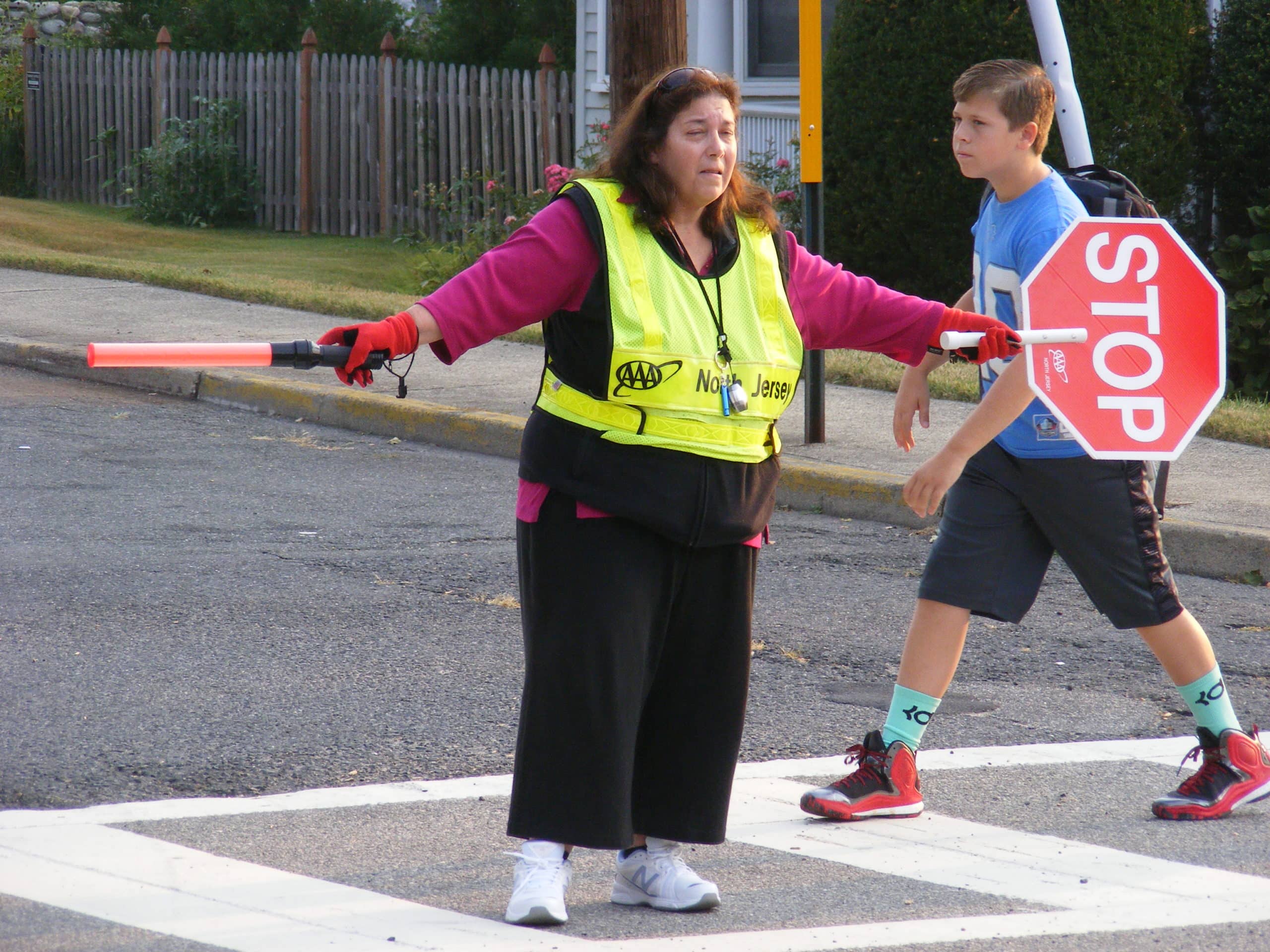
September 5,2017
the staff of the Ridgewood blog
Ridgewood NJ, yes those back to school lists cant be rather daunting, but former Miss New Jersey Dena Blizzard says suck it up and deal with it . In Her words what many parents are just afraid to say.

September 5,2017
the staff of the Ridgewood blog
Ridgewood NJ, yes those back to school lists cant be rather daunting, but former Miss New Jersey Dena Blizzard says suck it up and deal with it . In Her words what many parents are just afraid to say.

photo courtesy of Ridgewood Schools
September 2,2017
the staff of the Ridgewood blog
Ridgewood NJ, Colleen Gieniec, Kathy Kiedaisch are honored at Convocation with the Ashby Award (Colleen) and Tradition of Excellence Award (Kathy).
The Ashby Award was established in 1966 to honor former Superintendent Lloyd Ashby and his wife, Lois, for their distinguished service to the community. The recipient is selected from nominees submitted by staff members and is someone who, in the opinion of his or her peers, has upheld the Ashby tradition of service and contribution. This is the highest award that can be bestowed upon a Ridgewood staff member.
The Ridgewood Board of Education established the Tradition of Excellence Award in 2014 to honor a member of the support staff, who in the opinion of their peers has made an outstanding contribution to the excellence of the Ridgewood Public Schools.

Nicholas Katzban, Staff Writer, @NicholasKatzban Published 12:41 p.m. ET Aug. 31, 2017
RIDGEWOOD — According to a third-party audit presented this week, the Ridgewood school district special education programs exceed national standards, but staff training and guidelines could be improved.
The firm of Bryant, Gemza, Keenoy and Kozlik reported that “Ridgewood ranks consistently well when compared with similar districts in most categories.”
Based on a combination of their own reviews and observations, along with staff and parent surveys, the auditors noted that Ridgewood’s special needs programs, which serve children ages 3 to 21, offered some form of support services in each of the district’s schools. The report commended the dedication of specific classes for students with autism.
Ridgewood was found to have a rate of classification below the statewide mean, referring to the percentage of students in a district with a disability or receiving special-needs services. Superintendent Daniel Fishbein said a high percentage can raise the state’s eyebrows, as over-classification can be a means to increase a district’s funding.

August 31,2017
the staff of the Ridgewood blog
Ridgewood NJ, The Valley Hospital is pleased to announce that the Pediatric Sleep Disorders and Apnea Center is expanding its services to now offer Behavioral Sleep Coaching for children, from newborns to teens. The new service offers effective treatment for the psychosocial, psychological and environmental factors that commonly interfere with sleep.
“Sleep coaching utilizes proven approaches to build healthy sleep habits so that children can get a better night’s sleep,” said Stephanie Zandieh, M.D., M.S., Director of Pediatric Sleep Medicine at Valley. “Whether we are helping a child overcome his fear of the dark or teaching a toddler to fall asleep without her parent in the room, we work collaboratively with patients and their families to develop treatment plans that are uniquely suited to each child’s specific needs.”
Studies show that as many as 25 to 40 percent of children experience sleep difficulties such as stalling or protesting at bedtime, difficulty falling or staying asleep, or nighttime fears. If left untreated, these sleep problems can become chronic and lead to difficulties with learning, memory and concentration, declining academic performance, impulsivity/hyperactivity and poor emotional control. A child’s sleep problems can also disrupt the family and create negative parent-child dynamics.
“Proper sleep is essential to every child’s growth and development,” said Kim Cahill, R.N., M.S.N., A.P.N., CPNP-PC, who leads the Behavioral Sleep Coaching program. “Through face-to-face meetings and regular follow-up, we identify and eliminate the roadblocks that interfere with quality sleep, so that a child can feel great, have fun, learn more and perform his or her best.”
Fortunately, many sleep problems can be resolved through Behavioral Sleep Coaching. The underlying principle of the approach is that healthy sleep is a learned behavior. Valley’s experienced and knowledgeable team works with patients and their families to systematically introduce behavioral change, such as developing a consistent sleep schedule and a regular, relaxing bedtime routine. Families are involved at every step of care to help children attain the foundations of good sleep for the rest of their lives. Although each plan of care is unique, treatment can generally be completed in two to four sessions.
Dr. Zandieh and Ms. Cahill work collaboratively to accurately diagnose and treat sleep disorders. During an initial consultation, they will meet with patients and their families to obtain a complete medical and sleep history and perform a physical exam. If there are medical symptoms, such as snoring, increased body movements during sleep or excessive daytime sleepiness that are contributing to a child’s sleep problems, the child may first need specific medical treatment.
Dr. Zandieh is board-certified in sleep medicine, pediatric pulmonology, and pediatrics. As a pediatric sleep medicine specialist for more than 18 years, she has been devoted to providing comprehensive care to children from infancy to young adulthood.
Ms. Cahill has 17 years of experience in pediatric sleep medicine and is licensed through the New Jersey Board of Nursing and certified as a Pediatric Nurse Practitioner through the Pediatric Nursing Certification Board (PNCB), meeting the highest national standards for the care of pediatric patients.
Patients may be referred to the Pediatric Sleep Disorders and Apnea Center by their pediatricians, other physicians, or parents may call directly to make an appointment. The Center is credentialed with most major insurance companies and sleep coaching services are generally covered by insurance. Please contact the Center for a list of participating insurance plans.
For more information about The Valley Hospital Pediatric Sleep Disorders and Apnea Center visit www.ValleyHealth.com/PediatricSleep. To make an appointment at the Center, please call 201-447-8152.

file photo by ArtChick
Expanding Educational Opportunities For Children And Families
August 29,2017
the staff of the Ridgewood blog
Trenton NJ, Governor Christie has improved the authorizing and application process, encouraged more charter school applicants, created greater flexibility with administration and finances, and allowed districts to convert failing public schools into charters. The Christie Administration has increased the overall number of charter schools in New Jersey to 89 in the current fiscal year, while relentlessly focusing on quality and holding all schools accountable for results as 21 low-performing charter schools have closed during the past eight years.
The Host District Support Aid funding category created in fiscal year 2017 continued in fiscal year 2018, and ensured the base per pupil funding provided to charter schools is not less than the prior year base per pupil funding. In addition, the Interdistrict Public School Choice Program is increasing educational opportunities for students and their families by providing students with the option of attending a public school outside their district of residence without cost to their parents.
The Fiscal Year 2018 budget is projected to support more than 52,000 charter school students and more than 5,000 choice students in 129 choice districts in the 2017-18 school year.
Governor Christie continues to support educational options for our children by providing over $51 million for Charter School Aid in fiscal year 2018. This funding supports over 52,000 students projected to be in our charter schools in FY2018. This is in addition to the tens of millions of dollars in State Aid that flow through the districts to charter schools. In certain districts, like Newark and Camden, charter and renaissance schools are educating more than 1 out of every 4 of the public school population.
Easing The Regulatory Burden Facing Charter Schools
In 2016, Governor Christie announced a series of reforms at the 8th annual New Jersey Charter Schools Conference born from input received through meetings with charter school leaders in the fall of 2015. The New Jersey State Board adopted these reforms in 2017. Among the reforms adopted were:
• The state will allow single-gender charter schools that meet appropriate criteria and single-purpose charter schools for educationally disadvantaged students, such as a school serving over-age, under-credited students who, because of life circumstances, are unable to graduate in four years.
• Charter renewal will be expedited for schools with a track record of high academic performance and no fiscal or organizational issues. Charter schools that do not meet fiscal management/ compliance standards or present concerns regarding their fiscal viability will remain subject to deeper review.
• Weighted lotteries will be expanded by adding language explicitly allowing weighted lotteries for educationally disadvantaged students. Redundancies will be reduced by removing the requirement that charters send corrective action plans to the Executive County Superintendent as they already are submitted to the DOE Charter Office.
• The funding monitoring requirement will be relaxed since it has become unnecessary because of the new charter performance system. DOE will continue to monitor if charter schools are adequately allocating funds to impact what is happening in the classroom. And, cash fund procedures, which are difficult to navigate, will be updated and simplified.
• Districts will be required to report to DOE, on a rolling basis, any closed, unused or unoccupied school facility available for lease that would be posted online in order to facilitate cooperation between districts and charter schools.
• Satellite campus regulations will be redefined to allow charter schools to operate on multiple campuses within their approved district or region of residence. The requirement that charter leases cannot exceed the length of the charter – a barrier to obtaining financing – will be removed.
• New regulations will clarify renovations, expansion and reconstruction exemptions from the Charter School Act’s restriction on construction with State of local funds.
• The Christie Administration approved the expansion of several of the state’s highest performing charter schools.
• In March, 20 charter schools were approved to expand to provide more than 5,000 additional seats in high performing schools in the coming years.
• According to an independent report by The Center for Research on Education Outcomes (CREDO), “Compared to the educational gains that charter students would have had in a traditional public school (TPS), the analysis shows that students in New Jersey charter schools on average make larger learning gains in both reading and mathematics:
In Newark: “When we investigate the learning impacts of Newark charter schools separately, we find that their results are larger in reading and math than the overall state results.”
“On average, charter students in New Jersey gain an additional two months of learning in reading over their TPS counterparts. In math, the advantage for charter students is about three months of additional learning in one school year. Charter students in Newark gain an additional seven and a half months in reading and nine months in math.”
Among Black Students: “Black students enrolled in charter schools show significantly better performance in reading and math compared to Black students in TPS.”
Among Hispanic Students: “In both math and reading, Hispanic students in charter schools perform significantly better than Hispanic students in TPS.”
• According to a 2015 independent report on Urban Charter Schools by The Center for Research on Education Outcomes (CREDO), students enrolled in charter schools in Newark, on average, make statistically significantly greater gains in both reading and math compared to their counterparts enrolled in Newark’s traditional public schools. While, in Newark, charter schools on average are doing a better job of closing achievement gaps than are traditional public schools.
K-8 Schools:
From 2009 to 2014, charter schools serving K-8 students improved 6 percentage points in Language Arts Literacy and 15 percentage points in Mathematics, in the aggregate, on the NJASK.
Based on NJASK data in 2014, 64 out of 74 charter schools outperformed their comparative districts in language arts literacy.
Based on NJASK data in 2014, 64 out of 74 charter schools outperformed their comparative districts in mathematics.
° High Schools:
From 2009 to 2014, charter schools serving high school students improved 17 percentage points in both Language Arts Literacy and Mathematics, in the aggregate, on the ‘Banked’ HSPA.
Based on HSPA data, in 2014, 15 out of 15 charter schools outperformed their comparative districts in language arts literacy.
Based on HSPA data, in 2014, 12 out of 15 charter schools outperformed their comparative districts in mathematics.
Across all charter schools in 2014, the graduation rate was 90% compared to a state-wide graduation rate of 89.
• 2016 Charter Schools PARCC Data
Charter schools continue to outperform their district counterparts. In the elementary grades 3-5, 63 percent of charters outperformed the average across their district elementary schools in Math and 84 percent did so in ELA. In the middle school grades 6-8, 84 percent of charter schools outperformed their district middle school average in Math and 89 percent did so in ELA.
Charter schools serving grades 6-8 showed impressive gains in academic performance, as measured by median School Growth Percentiles (mSGPs). Almost half of all charters serving grades 6-8 achieved growth scores that are better than those of two-thirds of all public schools serving grades 6-8 in the state.
• Newark Charter Schools PARCC Performance
Charter schools in Newark are effectively accelerating student learning: in a district typically underperforming statewide achievement results, for two consecutive years students in grades 3-8 in Newark charter schools have met or exceeded expectations on PARCC assessments at the same rate as their peers around the state. For example, in 2015-16, the last year with available data, 51 percent of students in grades 3-8 in Newark charter schools met or exceeded expectations on a PARCC assessment in ELA compared to 50 percent of students in grades 3-8 across the state. In the same year, the percent of students in grades 3-8 who met or exceeded expectations on a PARCC assessment in math was 43 percent for Newark charter school students compared to 43 percent statewide.
Charter schools in Newark are effectively accelerating student learning for traditionally underserved subgroups: Students from economically disadvantaged backgrounds and minority students enrolled in grades 3-8 in Newark charter schools are meeting or exceeding expectations on PARCC assessments at a greater rate than their counterparts across the state. For example, in 2015-16, 63 percent of Hispanic students enrolled in grades 3-8 in Newark charter schools met or exceeded expectations on a PARCC assessment in ELA compared to 36 percent of Hispanic students statewide.
Newark charter schools have virtually eliminated the achievement gap for economically disadvantaged students. In 2015-16, statewide proficiency rates for students eligible for free or reduced price lunch trailed those for non-eligible students by 30 percentage points in both ELA and math. Those gaps shrinks to 3 and 2 percentage points, respectively, in Newark charter schools.
• Since taking office, state funding to support the local share of funding for students transferring out-of-district to approved school choice districts has increased by over $40 million.
• School choice funding has increased commensurately, and has surpassed $55 million in fiscal year 2018.
• Announced pilot educational program between Harlem Children’s Zone and City of Paterson.
Improving Oversight
The Christie Administration has worked to improve accountability for charter schools by instituting an oversight program that sets clear expectations for charter school performance and serves as the basis for school evaluation, monitoring, and intervention.
The Performance Framework sets the academic, organizational and fiscal standards by which all New Jersey public charter schools are evaluated, informing officials about school performance and sustainability.
NJDOE officials expanded the rigorous standards and metrics by which each and every public charter school is evaluated. This enabled NJDOE officials to take multiple factors into account when evaluating public charter schools across the state.

August 28,2017
the staff of the Ridgewood blog
Ridgewood NJ, Ridgewood HS Football kickoff dinner was August 26 . The Ridgewood Football season kickoff dinner was hosted by the scholarship committee. .Ridgewood Scholarship Committee President Rich Barclay remarked that Ridgewood football will surpass $1 milion in scholarship money this season.
The Legendary Ridgewood Football Head Coach Chuck Johnson spoke at kickoff dinner along with Senior starter Vincent Riggio and Senior Tight End Pete Marshall spoke to the crowd.
According to Varsity Aces the Football Public School Top 20 Countdown ,Ridgewood ranks Number 5 in our pre-season poll.
Schedule :
9/8 @ Hackensack (Hackensack, NJ)
Location: Hackensack High School
9/15 Paramus (Paramus, NJ)
Location: Ridgewood High School
9/28 @ NV – Old Tappan (Old Tappan, NJ)
Location: NV – Old Tappan High School
10/6 Passaic (Passaic, NJ)
Location: Ridgewood High School
10/13 Bergen Tech (Hackensack, NJ)
Location: Ridgewood High School
10/20 @ Kennedy (Paterson, NJ)
Location: Kennedy High School
10/27 Passaic County Tech (Wayne, NJ)
Location: Ridgewood High School
11/4 @ Eastside (Paterson, NJ)
Location: Eastside High School

August 25,2017
the staff of the Ridgewood blog
Ridgewood NJ, According to Google Trends, “school lunches” and “school lunch ideas” were the top rated Google searches last summer and fall surrounding back-to-school recipes. With such a heavy search emphasis on lunch ideas for children, Kings created four easy-to-make recipes for fun lunchtime eats:
Do you have the next Chef Emeril or Rachael Ray in your house? Our Kings parent and child Cooking Studio classes offer top-notch, hands-on experiences your young chefs will love. New classes are released monthly so be sure to check out the Kings website and sign up before they sell out!

HOW TO KEEP KIDS SAFE ON FACEBOOK, SNAPCHAT, INSTAGRAM, TWITTER, ONLINE APPS + MORE
August 25,2017
the staff of the Ridgewood blog
Ridgewood NJ, How can you keep children safe on social networks like Facebook, Instagram, Snapchat and Twitter, and protect their privacy on online apps? At what age should kids be allowed on these services? And what’s the best way to monitor their social media activity – as well as address any concerns that may come up?
You’ll find answers to these questions and more in new book , by author Scott Steinberg ,THE MODERN PARENT’S GUIDE TO FACEBOOK AND SOCIAL NETWORKS (https://www.AKeynoteSpeaker.com/Parents) – the ultimate guide to navigating today’s fast-moving social media landscape and keeping kids safe on the Internet – out today from bestselling keynote speaker and trends expert Scott Steinberg. Providing the answers that parents and teachers need to know to teach responsible social media habits, protect children’s privacy, and make social networks a more positive part of household and classroom life, THE MODERN PARENT’S GUIDE TO FACEBOOK AND SOCIAL NETWORKS offers crucial insights for equipping kids with all the tools that they to succeed in a connected world.
Designed to help kids and parents stay ahead of fast-changing online apps, and services, the book provides a vital resource for managing the use of high-tech devices and navigating today’s rapidly-evolving social media landscape. Important questions you’ll find answered inside include:
• How can you keep kids safe on social networks?
• Which types of information are OK to share on the Internet?
• What’s the best way to handle online and high-tech threats?
• How can you teach responsible online habits?
• What can you do to manage your family’s online reputation?
Want to keep your family safe? Know who your kids are connecting with? Teach positive online habits? Don’t miss THE MODERN PARENT’S GUIDE TO FACEBOOK AND SOCIAL NETWORKS – a must-read for any adult raising children in the digital and online age.
The book can be ordered at https://www.AKeynoteSpeaker.
THE MODERN PARENT’S GUIDE TO FACEBOOK AND SOCIAL NETWORKS presents a groundbreaking guide on how to keep kids safe on social media services, how to protect their privacy online, and what parents need to know about popular social networks like Facebook, Snapchat, Instagram, Twitter, and more. Designed to help kids and parents stay ahead of fast-changing online apps and services, it’s a vital resource for navigating today’s fast-evolving social media landscape. THE MODERN PARENT’S GUIDE TO FACEBOOK AND SOCIAL NETWORKS decodes the world of social media for today’s family and offers a complete range of expert hints, tips and solutions for ensuring that parents and kids alike can enjoy healthier and more rewarding experiences online. Topics covered include the use of social networks; keeping kids safe online; managing the use of high-tech devices and apps; and more.
Author Scott Steinberg was recently named the Master of Innovation by Fortune magazine, award-winning professional speaker Scott Steinberg is among today’s top trends experts and futurists, as seen in 600+ outlets from CNN to Time and The Wall St. Journal. The bestselling author of Make Change Work for You: 10 Ways to Future-Proof Yourself, Fearlessly Innovate, and Succeed Despite Uncertainty and Millennial Marketing: Bridging the Generation Gap, he heads management consulting and market research firm TechSavvy Global, which helps clients identify and adapt to emerging trends. A top-rated keynote speaker and the host of Next Up on NewsWatch, he provides presentations and training workshops at events, meetings and conferences. His website is www.AKeynoteSpeaker.com

Yes , everyone payes taxes but it is the long time residents who are burdened with the annual tax increases. Were you around when Ridgewood had the bright idea of adding a pool to the high school so the snowflakes did not have to travel to the YMCA? Fortunately, common sense prevailed and the pool was voted down. Not everyone has a bottomless bank account.
Take a look at the curriculum and see where some non-essential classes could be eliminated.
The all-knowing Board of Education eliminated shop class and an auto mechanic class a number of years ago because the residents thought these classes were below “Ridgewood educational standards ” and “decreasing enrollment”. These career paths can lead to financial independence as young adults. But I digress…
Final thoughts…Ridgewood never had a tax increase they didn’t like and they definitely don’t believe in the term ” budget neutral”.

August 11,2017
the staff of the Ridgewood blog
Ridgewood Nj, the Ridgewood School district has released a REVISED Back-to-School Night Schedule: Sorry for any inconvenience but there are a couple of changes to the BTS Night schedule (Ridge and Willard, specifically). Here it is:
Benjamin Franklin Middle School: Tuesday, September 12 at 7 p.m.
George Washington Middle School: Thursday, September 28 at 7 p.m.
Hawes Elementary School (Gr. 3-5): Thursday, September 14 at 6:30 p.m.
Hawes Elementary School (Gr. K-2): Thursday, September 14 at 8 p.m.
Orchard Elementary School: Thursday, September 14 at 6:30 p.m.
Ridgewood High School: Wednesday, September 13 at 7:30 p.m.
Ridge Elementary School: Tuesday, September 19 at 7 p.m. (revised)
Somerville Elementary School: Thursday, September 14 at 7 p.m.
Travell Elementary School: Thursday, September 14 at 7 p.m.
Willard Elementary School: Wednesday, September 27 at 7 p.m. (revised)

file photo by Boyd Loving
The prevalence of driving with phone in hand is very high. But the worst case I have seen was a woman driving a Hummer, talking on her cell phone with one hand and holding a cup of coffee in the other. She would regularly turn from Meadowbrook onto Fairfield during the school rush while steering that Hummer with her knees! She was followed closely in stupidity to the man driving down Rt 17S during rush hour while reading his newspaper. PLEASE, for everyone’s sake, DRIVE SAFELY!

September 8,2016
the staff of the Ridgewood blog
Ridgewood NJ, From piggy banks to that first savings account, many children are taught the value of saving from an early age.
But as they grow to adolescence, following parental advice sometimes gives way to peer or media influences, and those once-thrifty children are now teenagers in a consumer-driven world where spending, not saving, is king.
“Nearly everyone falls into two categories: spenders and savers,” says John Cortines, co-author with Gregory Baumer of God and Money: How We Discovered True Riches at Harvard Business School (www.godandmoney.net). “Spending is easy, so it’s up to parents to start conversations with their teens on the importance of saving and, just as importantly, giving.”
Cortines and Baumer suggest three ways parents can help teens establish good financial habits before they reach adulthood, and pave the way for those teens to become generous people as well as good savers:
• Help them begin saving for retirement now. Teens who land a part-time job often want to save money to buy a car or they simply want to enjoy a little financial freedom with weekend shopping sprees. Unless they’re careful, that money burning a proverbial hole in their pocket is spent before the next payday. Parents can help them think beyond today by suggesting they invest a portion of that income in a Roth IRA. Mom and Dad can even consider matching their teen dollar-for-dollar on their savings. “Explain the wonder of compounding investment returns – how the money they invest as a teen could be worth 10 to 20 times as much when they retire,” Cortines says.
• Family philanthropy. Even if the gifts are modest, Cortines and Baumer advocate involving teens in the family giving plan. Encourage them to research charities and apply for “grants” from the family’s budget for giving. “The experience of learning about nonprofits will be invaluable,” Baumer says. This is also where another portion of the teen’s earnings from a part-time job could be placed.
• Let them into your journey. Parents should model what they want their teens to emulate. Cortines said this begins with “letting them see your character as reflected in financial decisions.” That doesn’t mean letting teens know their parents’ net worth or the details of their income. Baumer and Cortines suggest explaining to teens how living modestly has short- and long-term benefits, whether it has allowed an early payoff of a mortgage, or demonstrates that frugal purchasing decisions leave money available for charitable giving.
“If you frame the conversation well,” Baumer says, “teens will benefit from seeing your character on display as you navigate your finances.”
Once saving and giving goals are fulfilled, teens can then begin to focus on spending.
“But unless spending is kept under control,” Cortines says, “saving and giving simply aren’t possible at any meaningful level.”
About John Cortines and Greg Baumer
John Cortines and Greg Baumer are co-authors of God and Money: How We Discovered True Riches at Harvard Business School (www.godandmoney.net). Baumer is VP of Business Development for naviHealth, a Nashville-based healthcare technology firm. Cortines is Executive VP of Emerging Leaders for Generous Giving, an organization that exists to share the biblical message of generosity.

the staff of the Ridgewood blog
Ridgewood NJ, first day of school for students was marked by teacher contract protests . The Ridgewood Education Association held a rally at 4:00pm at the Ed Center. The REA was hopping to garner more support from parents and students and pressure the BOE to settle. The union has implied the possibility of a strike .
That evening a negotiation session was held the Board of Education members and the REA negotiating team met with the state-appointed super conciliator for ten hours. According to the BOE progress was made, but a settlement was not reached.
The BOE in a letter to parents also went to great lengths to assure parents that in New Jersey it is illegal for public employees to strike. A 1967 NJ Supreme Court decision, In Re Block, confirmed this. Since then, teachers in districts such as Manville and Middletown have tried to strike and have had the county courts grant injunctions stopping them. Some teachers were arrested for civil contempt in violating the court injunctions. The NJ Public Employment Relations Commission (PERC) has also re-affirmed that strikes are illegal and are not a protected union activity.
.

A message from the New Jersey State Police
It’s Not #CreepyClowns that Parents Should be Worried About
There’s been a lot of talk about creepy clown sightings these days. It’s true. Recently in both North and South Carolina, there have been reported sightings of, for lack of a better term, creepy clowns prowling around neighborhoods, scaring children. Some reports claim that these clowns could be a publicity stunt while others claim that these people have a much more sinister intent, which is supported by reports of some attempting to lure kids closer with money.
Well, we know that there are a lot of good, hard-working clowns right here in Jersey. Heck, you might even work with one or two (wink). Of course, it’s probably their part-time job, unless you all work for a circus. With that being said, we’re happy to report no suspicious or creepy clown activity here in Jersey
But these recent event gives us an opportunity to talk about safety tips that you can give your kids. After all, the kids are back in school, which means many are walking to and from home. You see, a scary-looking clown beckoning children closer may be all that is needed to have your child do the right thing, which is to walk in the other direction. It’s the unassuming person, man or woman, who your child should be wary of. Here are some tips:
*Talk to your kids
*Tell them who they can expect to come and get them in an emergency (family member or close friend)
*When walking to school, there is strength in numbers—walk in a group
*Never get into a stranger’s car
*Keep a safe distance from strangers asking for directions or help
*Tell your kids to yell, scream and kick if grabbed by a stranger
*Look around, stop looking for Pokemon—be aware of your surroundings
*If a stranger claims to be a cop but is not in uniform, kids should find a trusted adult
Let’s talk about that last tip for a minute. Are your kids familiar with the faces of the local police? Don’t just rely on the cops visiting schools. Drop by a station anytime to have your kids meet the troops or local police who patrol your area! It’s a great way get to know the troops and for the troops to get to know you and your kids!
For all of the coulrophobics out there, we apologize for the pic, but it was necessary. Sadly, at the end of the day, if all of the bad people out there stuck out as much as a person dressed as a clown, we wouldn’t have write posts like this.
Be safe, people!

September 06, 2016
the staff of the Ridgewood blog
Trenton NJ, As many New Jersey students head back to school today, Governor Christie visited Grover Cleveland Middle School in Caldwell to act upon seven bills focused on improving education in the state.
“Over the last six years, my administration has prided itself on engaging in education reform to make sure our schools are safer, more effective, and facilitating the success of our students,” said Governor Christie. “Providing and ensuring a high quality education for every student in every corner of this state is a firm commitment of mine and it is why I continue to support and bolster education in the Garden State.”
For the last two months, Governor Christie has traveled the state talking about his Fairness Formula, which would change the school funding formula to provide equal funding of $6,599 per enrolled student, while continuing aid for special needs students and at the same time providing much-needed property tax relief to municipalities.
The Governor’s fiscal year 2017 budget spends more than $13.3 billion on education, an increase of $548 million from fiscal 2016, continuing a six-year commitment to providing the highest amount of school aid in New Jersey history.
The state’s high school graduation rate continues to increase. In 2015, the rate was 89.7 percent, up from 88.6 percent in 2014, the fourth straight year that the statewide high school graduation rate increased and the third consecutive year in which it grew by at least a full percentage point.
Other education accomplishments include reforming teacher tenure rules, greatly expanding charter schools, and establishing Renaissance schools under the Urban Hope Act.
The bills the Governor acted on today include measures to enhance school security and early intervention in situations where students exhibit behavioral or learning problems, and that will ensure that substance abuse instruction for students encompasses the latest research and best practices. Governor Christie has also signed two bills focused on higher education, to increase transparency and enable public colleges and universities to save money by engaging in cooperative purchasing agreements. Specifically, the Governor took the following action on the following pending legislation:
BILL SIGNINGS:
S-2081/A-3790 (Ruiz, Turner/Vainieri Huttle, Wimberly) – Limits expulsions and suspensions for students in preschool through grade 2 with certain exceptions; requires early detection and prevention programs for behavioral issues in preschool through grade 2
A-2292/S-372 (Vainieri Huttle, Benson, McKnight, Gusciora, Lampitt, Wimberly/Codey, Allen) – Requires review of Core Curriculum Content Standards to ensure guidance for substance abuse instruction provided to public school students incorporates most recent evidence-based standards and practices
A-2563/S-1753 (Jasey, Singleton, Wimberly, Danielsen/Turner) – Directs institutions of higher education and proprietary degree-granting institutions to provide Higher Education Student Assistance Authority with graduation and transfer rates of State tuition aid grant recipients
A-2566/S-496 (Jasey, Wimberly/Ruiz, Turner) – Establishes Response to Intervention initiative in DOE to support and encourage school districts in implementation of Response to Intervention framework
A-2689/S-754 (Schaer, Prieto, Lagana, Lampitt, Vainieri Huttle, Eustace, S. Kean, Auth, Quijano, Wimberly/Beach, Gordon) – “Secure Schools for All Children Act”; establishes State aid program for security services, equipment, or technology to ensure safe and secure school environment for nonpublic school students
A-3405/S-1822 (Coughlin, Schaer, Jasey, Benson/Sarlo, Cunningham) – Permits certain public institutions of higher education to make purchases and contract for services as participating contracting units in cooperative pricing systems and through use of nationally-recognized and accepted cooperative purchasing agreements
BILL VETOED:
S-86/A-3629 (A.R. Bucco, Sweeney/A.M. Bucco, Rible, Singleton, Caride, Moriarty, Schepisi, Wimberly) – CONDITIONAL – Establishes Class Three special law enforcement officers to provide security in public and nonpublic schools and county colleges